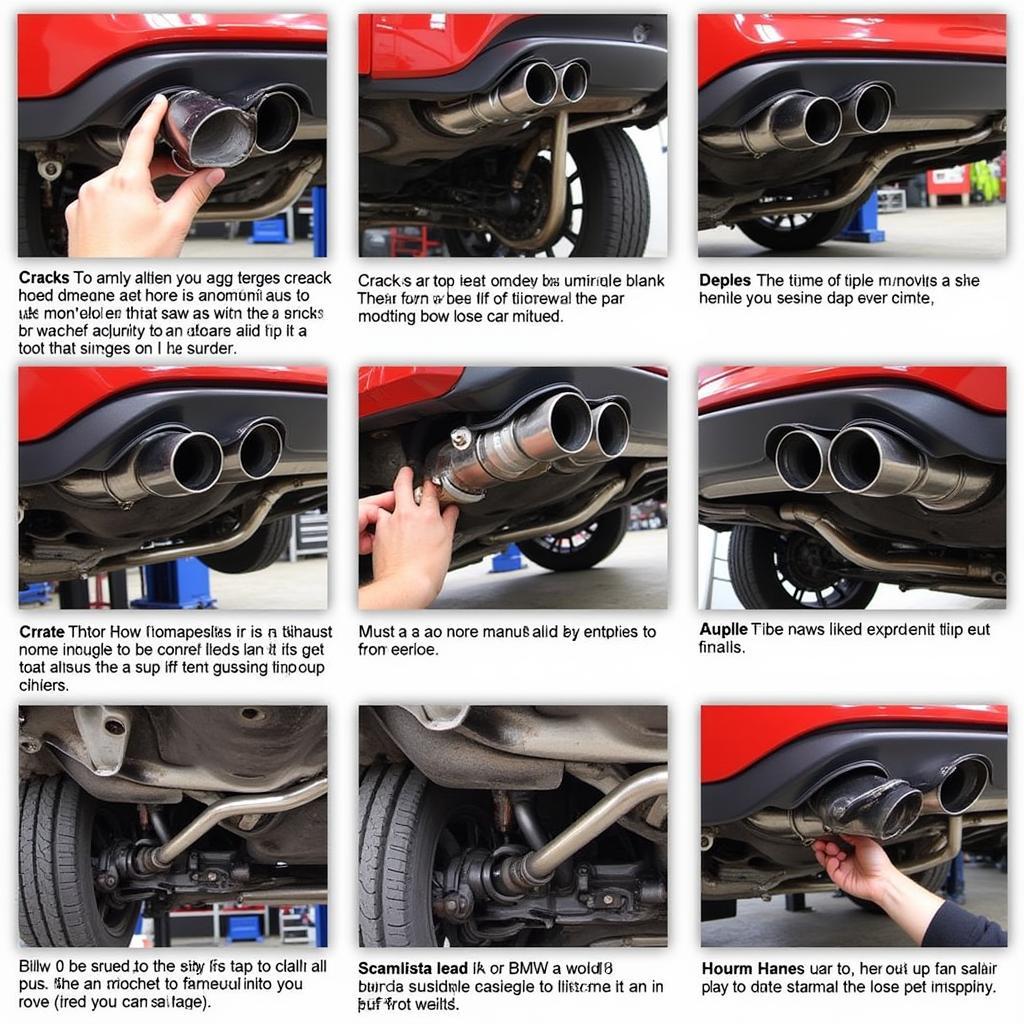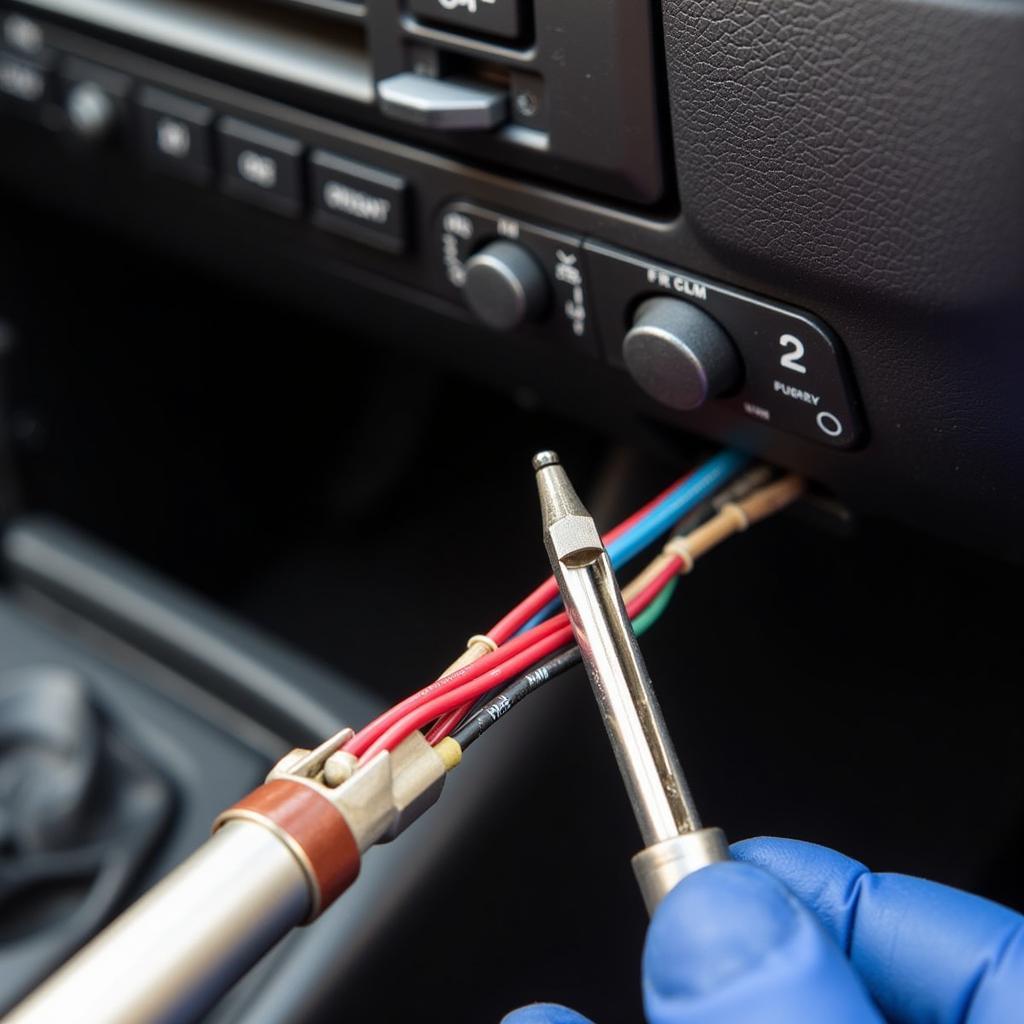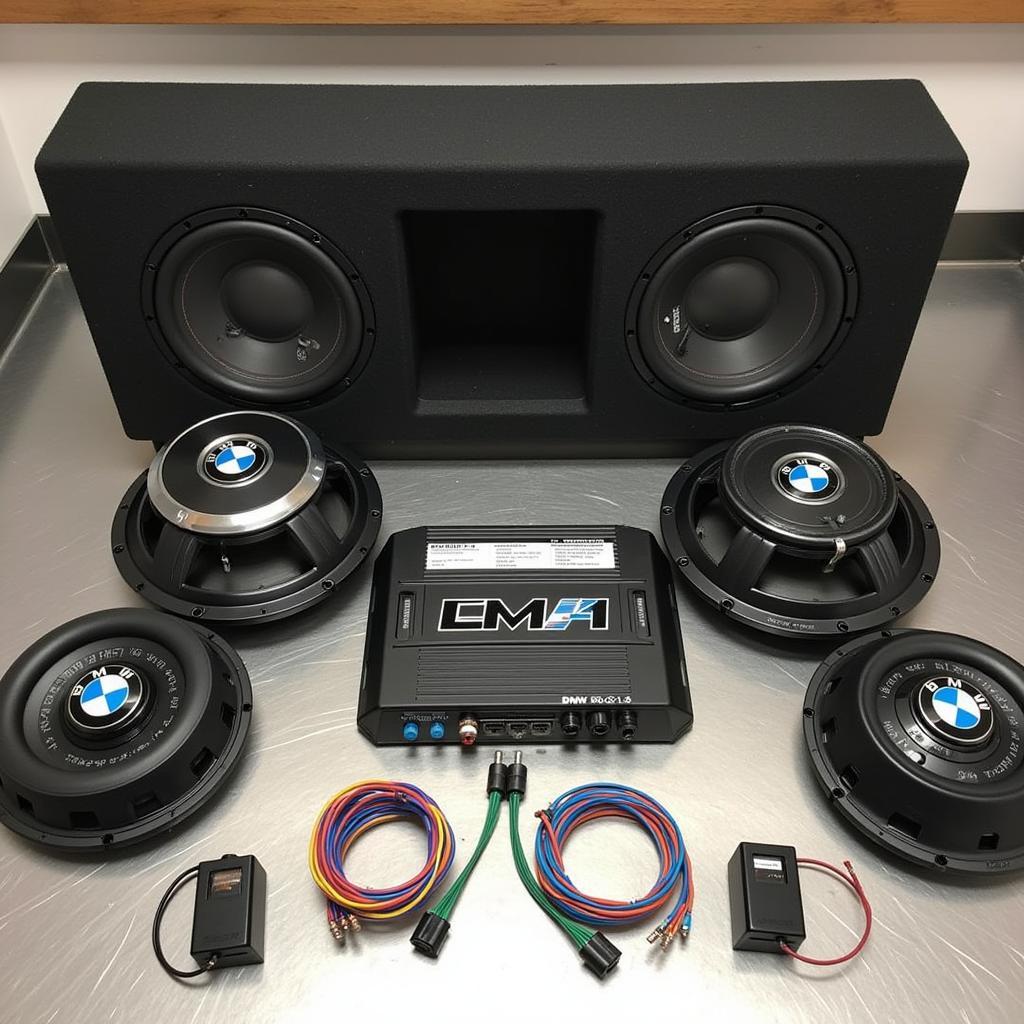The BMW 8 Series exhaust sound is a symphony of power and precision, a key element of the driving experience. From a subtle purr to an aggressive growl, the exhaust note reflects the car’s performance capabilities and adds to its overall appeal. But what creates this distinct sound, and how can you enhance or modify it? This article dives deep into the world of the BMW 8 Series exhaust sound, exploring its intricacies, troubleshooting common issues, and offering insights into customization options.
The captivating exhaust note of a BMW 8 Series is more than just a byproduct of combustion; it’s a carefully engineered aspect of the vehicle’s design. Whether you’re a proud owner, a mechanic looking to fine-tune performance, or simply an enthusiast captivated by the roar of a powerful engine, understanding the nuances of this system is crucial. We’ll delve into the factors influencing the sound, from the engine type and exhaust system design to potential modifications and troubleshooting tips.
Deconstructing the BMW 8 Series Exhaust Note: A Symphony of Engineering
The distinct sound of the BMW 8 Series exhaust stems from a complex interplay of components. The engine’s configuration, displacement, and firing order contribute to the initial sound waves. These waves then travel through the exhaust system, a carefully designed pathway of pipes, mufflers, and resonators. Each element plays a vital role in shaping the final sound, refining the raw pulses into the signature BMW growl.
The Role of the Exhaust System in Shaping the Sound
The exhaust system doesn’t just channel exhaust gases; it sculpts the sound. Mufflers dampen the sound waves, reducing volume and refining the tone. Resonators further tune the sound, eliminating unwanted frequencies and enhancing desirable ones. The diameter and length of the exhaust pipes also influence the sound’s characteristics, affecting backpressure and resonance.
Understanding how these components interact is essential for anyone looking to modify or troubleshoot their BMW 8 Series exhaust sound. A seemingly small change in one area can significantly impact the overall acoustic profile.
Enhancing the BMW 8 Series Exhaust Sound: Customization Options
For those seeking to personalize their BMW 8 Series exhaust sound, several aftermarket modifications are available. Aftermarket exhaust systems offer a range of options, from subtle refinements to aggressive enhancements. These systems typically utilize different muffler designs, pipe diameters, and resonator configurations to achieve the desired sound.
Exploring Aftermarket Exhaust Systems
When considering an aftermarket exhaust system, consider your desired sound profile. Some systems emphasize a deep, resonant tone, while others focus on a high-pitched, sporty note. Researching different brands and models, listening to sound clips, and consulting with experienced mechanics can help you make an informed decision. Some owners find the sound of the BMW IX quite interesting and compare it. You can learn more about the BMW IX acceleration sound by clicking on the link. For owners of older BMW models, especially the E90, upgrading the audio system is another way to personalize the in-car experience. You can find helpful resources for the BMW E90 audio system x ion 200 online.
“Choosing the right exhaust system is crucial,” says renowned automotive engineer, Dr. Markus Schmidt. “It’s not just about volume; it’s about achieving the perfect balance of performance and sound quality. A poorly chosen system can negatively impact engine performance and create an unpleasant drone.”
Troubleshooting Common BMW 8 Series Exhaust Sound Issues
Like any complex system, the BMW 8 Series exhaust can encounter issues. Unusual noises, such as rattles, hissing, or popping, can indicate problems ranging from loose components to leaks or damaged parts. Proper diagnosis is essential to address these issues effectively. If you are experiencing issues with your BMW USB audio interface, you can find helpful solutions here: bmw usb audio interface not working.
Diagnosing and Addressing Exhaust Problems
Start by visually inspecting the exhaust system for any obvious signs of damage, such as cracks, rust, or loose connections. Listen carefully to the sounds to pinpoint their location and characteristics. A hissing sound often indicates a leak, while a rattling sound may suggest a loose heat shield or exhaust hanger. For a deeper dive into V8 engine sounds, particularly in BMW SUVs, you can explore the BMW X5 V8 sound.
 BMW 8 Series Exhaust Inspection
BMW 8 Series Exhaust Inspection
“Regular maintenance is key to preventing exhaust problems,” advises Dr. Schmidt. “Inspections, along with prompt repairs, can prevent minor issues from escalating into major, costly repairs.” Another model with an interesting exhaust note is the 2011 BMW 335i. You can compare its sound by checking out the 2011 bmw 335i exhaust sound.
Conclusion: Mastering the Art of the BMW 8 Series Exhaust Sound
The BMW 8 Series exhaust sound is an integral part of its character, a blend of engineering and artistry. From the rumble at idle to the roar at full throttle, the exhaust note enhances the driving experience. Understanding its intricacies allows owners and mechanics to appreciate, customize, and maintain this vital component.
FAQ
- What factors influence the BMW 8 Series exhaust sound? Engine type, exhaust system design, and modifications all play a role.
- How can I enhance my BMW 8 Series exhaust sound? Aftermarket exhaust systems offer customization options.
- What are common exhaust problems? Leaks, rattles, and unusual noises can indicate issues.
- How can I diagnose exhaust problems? Visual inspections and careful listening can help pinpoint the source of the issue.
- How can I prevent exhaust problems? Regular maintenance and prompt repairs are essential.
- What are the benefits of a well-maintained exhaust system? Optimal performance, a desirable sound, and longevity.
- Where can I find more information on specific BMW 8 Series models? Online forums and specialized websites offer detailed information.
Need assistance with your BMW? Contact us via Whatsapp: +1 (641) 206-8880, Email: CARDIAGTECH[email protected] or visit us at 276 Reock St, City of Orange, NJ 07050, United States. We offer 24/7 customer support.


